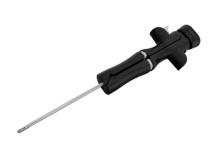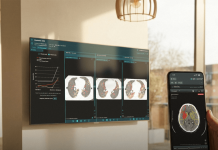The US Food and Drug Administration (FDA) has cleared Microbot Medical’s LIBERTY, a single-use, remotely operated robotic system for peripheral endovascular procedures.
Microbot completed the ACCESS-BVI pivotal trial (NCT06141694) for its system in April 2025. Meeting the primary and secondary endpoints, the study demonstrated a 100% success rate in the robotic navigation to target with zero device-related adverse events (AEs) through the three-day follow-up period.
Related: Lifeward wins CE mark for ReWalk 7 personal endoskeleton
Microbot’s chairman and CEO Harel Gadot revealed that the company has been developing its ‘commercial readiness’ strategy since Q2 2025 and is now ‘well-positioned’ to accelerate its market entry.
Gadot said: “With FDA clearance, we can now complete the final commercial activities that were contingent on marketing clearance, positioning us to commence commercialisation, penetrate the approximately 2.5 million annual US peripheral vascular procedures, and pursue entry into global markets.”
The overall global robotic surgical systems market is growing at a compound annual growth rate (CAGR) of 12.1% and is projected to reach a valuation of $9.2bn by 2034, up from $2.9bn in 2024, according to a GlobalData market model.
First launched in 2000, Intuitive Surgical’s da Vinci surgical robot dominates the robotic surgery sector by a wide margin, with a US and global market share of 86.5% and 76%, respectively.
Other players vying to enter the robotic surgery market include Johnson & Johnson (J&J) with its Ottava robotic surgical system. In November 2024, J&J won an investigational device exemption (IDE) from the FDA, enabling the medtech giant to begin conducting clinical trials at US sites to gather the requisite safety and efficacy data necessary to support a future market clearance application.
In December 2024, EndoQuest secured an IDE from the FDA for its Endoluminal Surgical (ELS) System, which is designed to address challenges in endoscopic submucosal dissection procedures.
In more recent surgical robotics developments, Cleveland Clinic spinout Method AI raised $20m last month to support its development of a platform designed to overcome tumour visualisation challenges in robotic oncology surgery.
In addition, Boston-based Vicarious Surgical revealed during a Q2 2025 earnings call that it was delaying its previously outlined plans to initiate first-in-human clinical trials of its V1.0 robot by the end of this year to instead focus on “design lock”.




